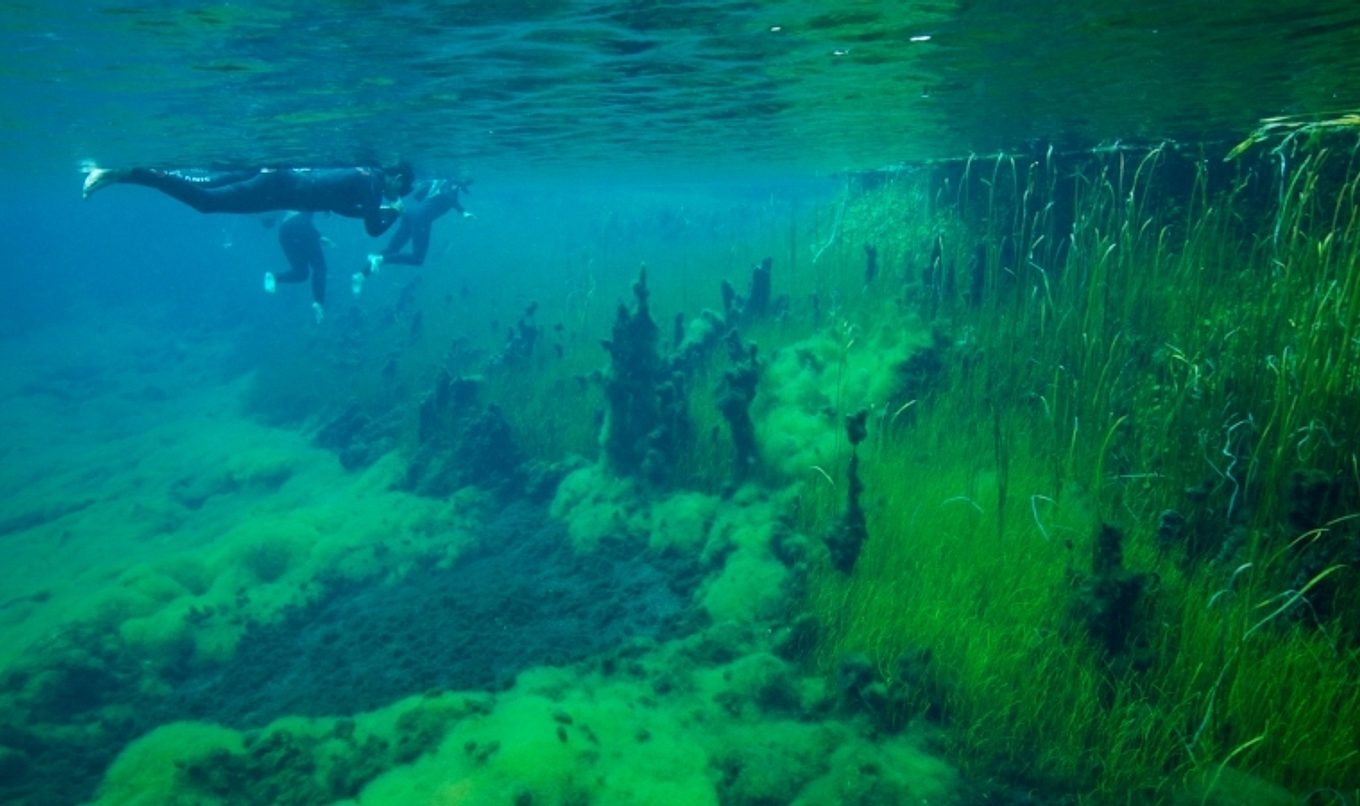Permits introduced to protect Ewens Ponds
Snorkelling and diving permits will soon be introduced for Ewens Ponds Conservation Park to better conserve and sustain the crystal-clear limestone ponds for the future.

Ewens Ponds Conservation Park, in the state’s southeast, is a unique attraction, but with increased visitation, there is a greater risk of damage to this special area.
From July 1 the Department for Environment and Water (DEW) is introducing a permit system to help ensure the conservation and sustainable use of the ponds.
DEW senior Ranger Aidan Laslett said the Department has already taken other steps to conserve this area for visitors and the unique species that call the ponds home.
“In an effort to preserve this amazing place, we no longer permit any general swimming in the ponds and have a seasonal closure over spring to let the ponds rejuvenate,” Mr Laslett said.
“Ewens Ponds provides habitat to the endangered Glenelg Spiny Freshwater Crayfish (Euastacus bispinosus), and the vulnerable Ewens Pygmy Perch (Nannoperca variegata).
“The brilliant water clarity also allows plants to grow underwater to depths of around six metres. Some of these plants are not found growing fully submerged anywhere else in the world.”
Thousands of recreational divers and snorkelers visit the ponds each year, adding to vegetation damage as sediment is stirred up and underwater plants are disturbed.
“Unfortunately this aquatic vegetation has deteriorated,” Mr Laslett said.
“The permit system will limit the number of people in the water at any given time. This will help to manage the impact on underwater vegetation, and provide a better experience for visitors who deserve to see this special area under the best possible conditions.
“Permit fees will go towards the ongoing management of Ewens Ponds, ensuring that this unique local gem is kept intact for years to come.”
Permits will be available via the National Parks SA website, and will allow visitors to be in the water for up to one hour. Annual permits will also be available.

